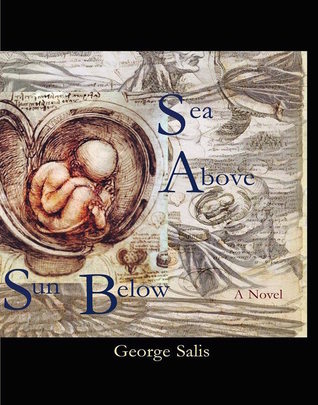 Sea Above, Sun Below by George Salis is a rich and masterful novel. It is a balanced reading experience, told from differing perspectives, chockablock with symbolism and allusion and wordplay.
Sea Above, Sun Below by George Salis is a rich and masterful novel. It is a balanced reading experience, told from differing perspectives, chockablock with symbolism and allusion and wordplay.
The descriptions of people, the universe, and abstract concepts are always lyrical and moving. The characters, though isolated in their narrative spheres from other characters, all relate in symbolic ways, interacting like entangled particles.
This is a tale about skydiving, the brave divers through the sky, and the diverse revelations they encounter on land and in the arms of God, up in the air, floating like angels, hovering above the ball and chain of their earth, which to some is an Eden, and to others, an egg, flush with history, pregnant with myth.
It is also about childhood and escape, tragedy, and the infinite potential of the future, told in convincing voices with heart and love and joy. I was enchanted by the realistic characters, the effortless flow of the evocative language, the precise word choice, effective dialogue, and seamless storytelling. The novel works on multiple levels at once, guiding the reader through layers of meaning. It does not engage in handholding, nor is it like wandering a labyrinth. Reading it is like falling—which is a metaphor the novel makes ample use of—into a magical realm. The picture widens as you proceed, and the sky behind you is full of Halley’s comets, decaying gods, and past memories discarded like ballast.
There are many brilliant moments of interstitial congruency, like the following quote: “With the advancement of technology, he knew the future, however distant, would reveal the reality of alchemy.”
Sea Above, Sun Below is literary alchemy. A magnificent novel.
Review by L.S. Popovich
L.S. Popovich is the author of Undertones and Echoes From Dust. They have always been a cat person (a person who like cats, not a cat human hybrid).


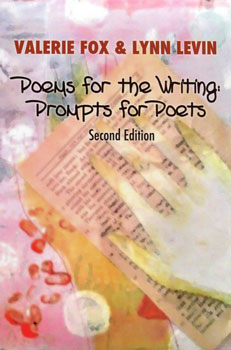 In the second edition of Poems for the Writing: Prompts for Poets (
In the second edition of Poems for the Writing: Prompts for Poets (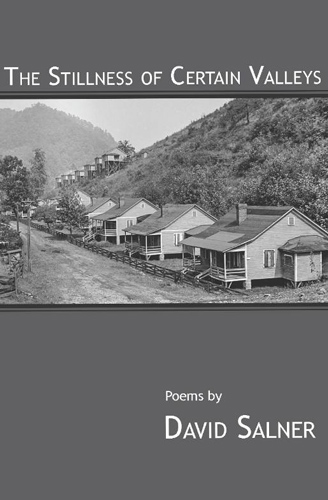 David Salner‘s
David Salner‘s 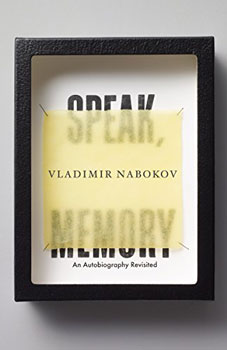 Although published in 1951, any person serious about literature would do well to read or reread Nabokov’s captivating autobiography, if not for the rapture of his complicated life, then for the beauty of his syntactical architecture. A master of form devoted to meaning, Nabokov relays the truths of a man twice removed from his home country of Russia, once by revolution and again with the rise of the iron curtain. He renders through complex but clear sentence structure the pains of diaspora and the call to home which he can never truly answer. Within this beautiful prose he also provides insight into his master works Lolita, Despair, and The Gift. He dangles before the reader a maze of sentences each providing a decadent feast for those who value—above all—the meaning-making capacity of provoking syntax.
Although published in 1951, any person serious about literature would do well to read or reread Nabokov’s captivating autobiography, if not for the rapture of his complicated life, then for the beauty of his syntactical architecture. A master of form devoted to meaning, Nabokov relays the truths of a man twice removed from his home country of Russia, once by revolution and again with the rise of the iron curtain. He renders through complex but clear sentence structure the pains of diaspora and the call to home which he can never truly answer. Within this beautiful prose he also provides insight into his master works Lolita, Despair, and The Gift. He dangles before the reader a maze of sentences each providing a decadent feast for those who value—above all—the meaning-making capacity of provoking syntax.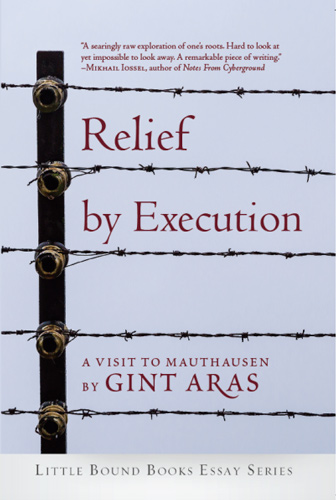 A haunting meditation on the legacy of racism, violence, and abuse,
A haunting meditation on the legacy of racism, violence, and abuse, 
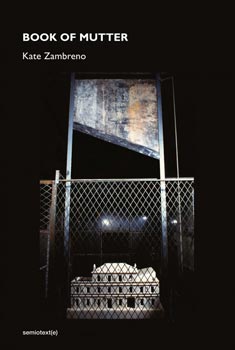 Exploring the complexities and absurdities of grief,
Exploring the complexities and absurdities of grief, 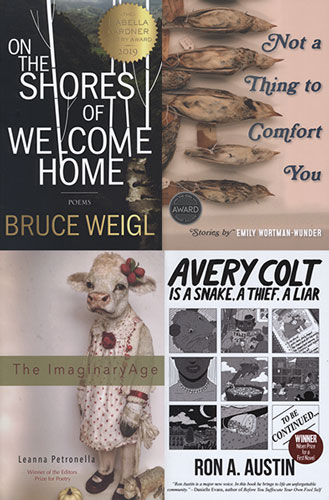 Today we’re bringing you a tall stack of award-winning fiction and poetry books published this past month. Click Read More to find the full list.
Today we’re bringing you a tall stack of award-winning fiction and poetry books published this past month. Click Read More to find the full list.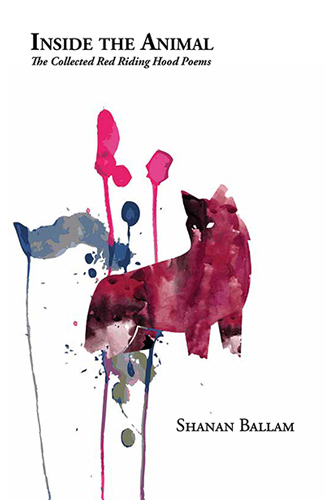 Shanan Ballam’s newest book, Inside the Animal: The Collected Red Riding Hood Papers, published by
Shanan Ballam’s newest book, Inside the Animal: The Collected Red Riding Hood Papers, published by 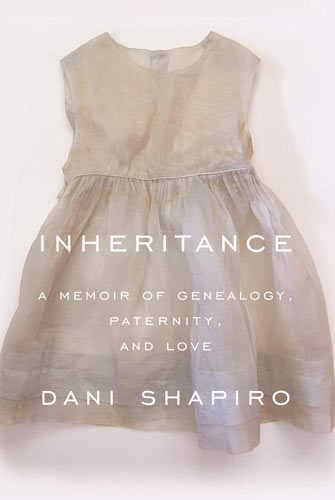 A psychoanalytic spin on the “unthought known” stream of one woman’s stumble upon the narrative of self, reflective of intuitive synchronicity, Inheritance: A Memoir of Genealogy, Paternity, and Love bursts the bubbles of vintage notions of the perfect family, or at least the façade of what the perfect family should have been.
A psychoanalytic spin on the “unthought known” stream of one woman’s stumble upon the narrative of self, reflective of intuitive synchronicity, Inheritance: A Memoir of Genealogy, Paternity, and Love bursts the bubbles of vintage notions of the perfect family, or at least the façade of what the perfect family should have been.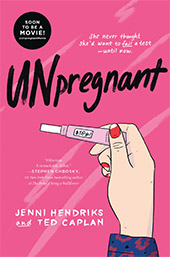 Unpregnant Offers a Radical Normalization of Abortion and Reproductive Health. Currently, we’re in a terrifying moment in history for reproductive health in America, which makes abortion no laughing matter—and that’s exactly why Unpregnant, the debut YA novel by Jenni Hendricks and Ted Caplan, is such a breath of fresh air. Unpregnant tells the tale of an overachieving 17-year-old named Veronica Clarke who discovers that she is pregnant a month before her high-school graduation. Seeing her college education (she’s been accepted to Brown University) and future slipping away, she enlists her former best friend—and current school outcast—Bailey Butler to drive her to an abortion clinic that doesn’t require a parental signature. The only catch? The clinic is more than 900 miles away…
Unpregnant Offers a Radical Normalization of Abortion and Reproductive Health. Currently, we’re in a terrifying moment in history for reproductive health in America, which makes abortion no laughing matter—and that’s exactly why Unpregnant, the debut YA novel by Jenni Hendricks and Ted Caplan, is such a breath of fresh air. Unpregnant tells the tale of an overachieving 17-year-old named Veronica Clarke who discovers that she is pregnant a month before her high-school graduation. Seeing her college education (she’s been accepted to Brown University) and future slipping away, she enlists her former best friend—and current school outcast—Bailey Butler to drive her to an abortion clinic that doesn’t require a parental signature. The only catch? The clinic is more than 900 miles away… 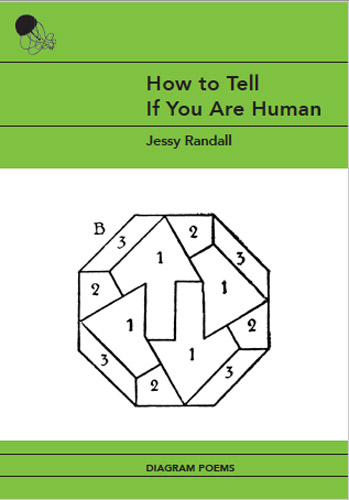 Do you ever find yourself feeling out of sorts, unable to tell if you’re still human?
Do you ever find yourself feeling out of sorts, unable to tell if you’re still human? 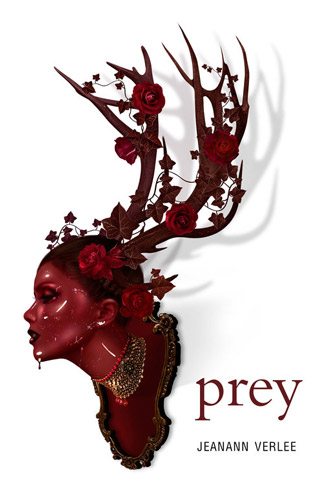 Jeanann Verlee
Jeanann Verlee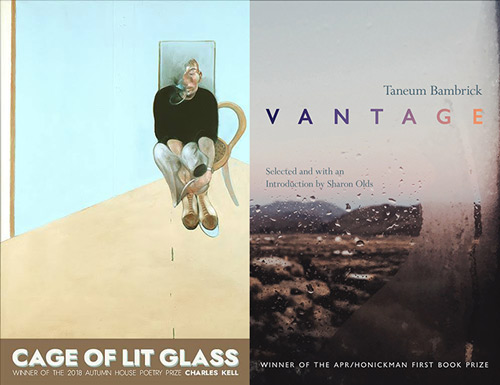 Take some time to check out award-winning books published this September.
Take some time to check out award-winning books published this September.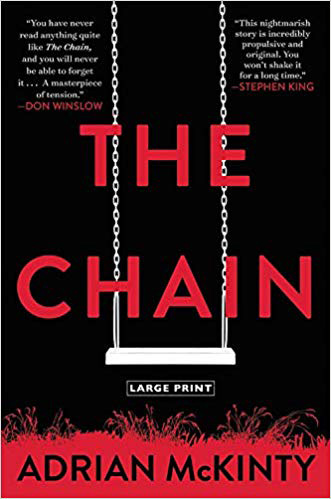 You are now part of The Chain.
You are now part of The Chain.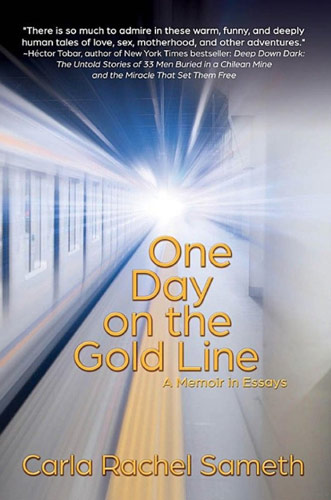 Carla Rachel Sameth’s
Carla Rachel Sameth’s 
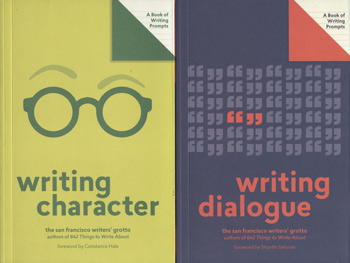 Abrams Noterie
Abrams Noterie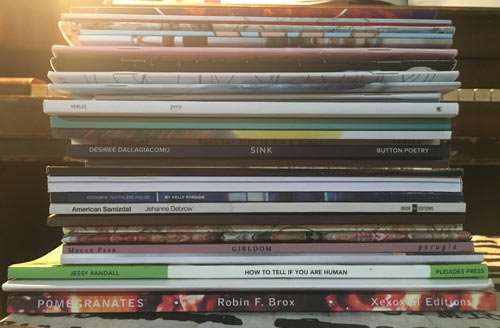 August is here and with it comes the third annual Sealey Challenge. Started by
August is here and with it comes the third annual Sealey Challenge. Started by 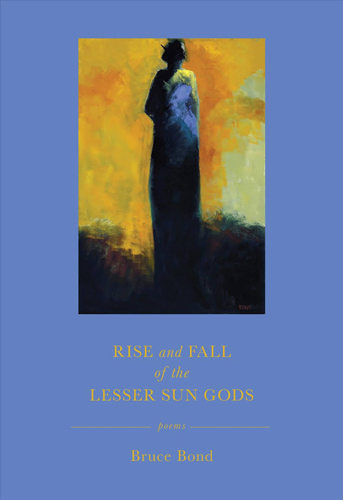 Perhaps it is because this was written in January, and in my part of the world, the temperature was hovering around 0 degrees. Maybe it is the hours I had spent hibernating and devouring hours of classic movies from the 1940s and 50s aired on TCM. Or maybe it’s simply the idea of a ‘radio in the sand’ emitting static and faint music from another place in the universe—Hollywood.
Perhaps it is because this was written in January, and in my part of the world, the temperature was hovering around 0 degrees. Maybe it is the hours I had spent hibernating and devouring hours of classic movies from the 1940s and 50s aired on TCM. Or maybe it’s simply the idea of a ‘radio in the sand’ emitting static and faint music from another place in the universe—Hollywood.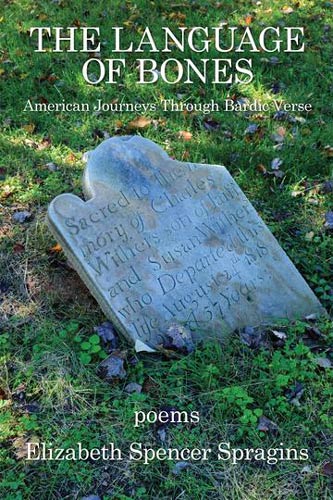 Elizabeth Spencer Spragins’ passion for bardic verse in
Elizabeth Spencer Spragins’ passion for bardic verse in 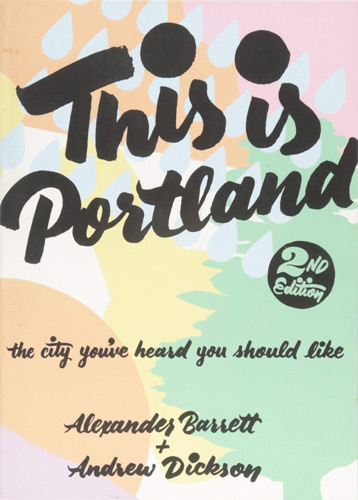 I walked into
I walked into 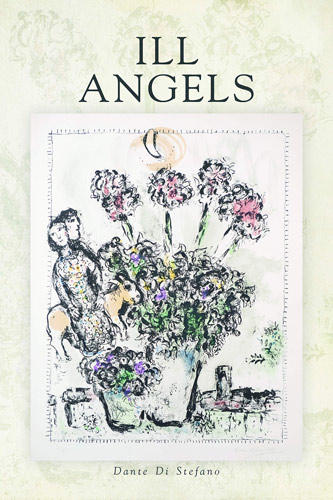 Dante Di Stefano creates a fascinating read of precise opinions and clever phrasing with poetry in his new book,
Dante Di Stefano creates a fascinating read of precise opinions and clever phrasing with poetry in his new book, 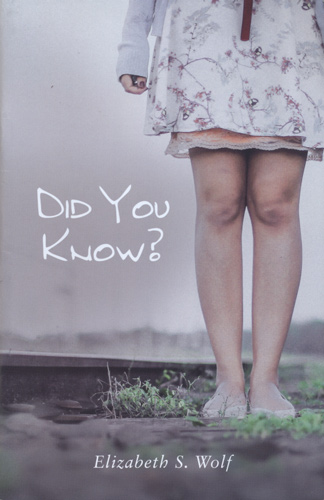 Subscribers to
Subscribers to 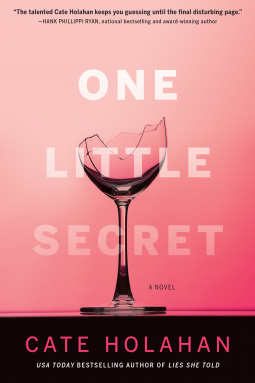 “People in glass houses should not throw stones”
“People in glass houses should not throw stones”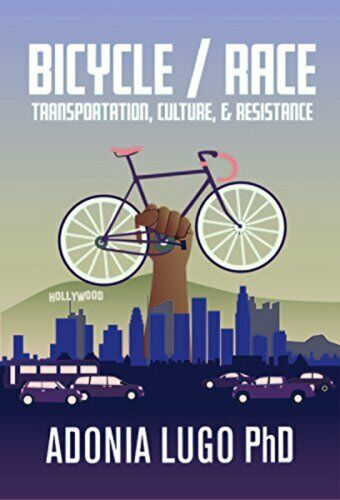 In “
In “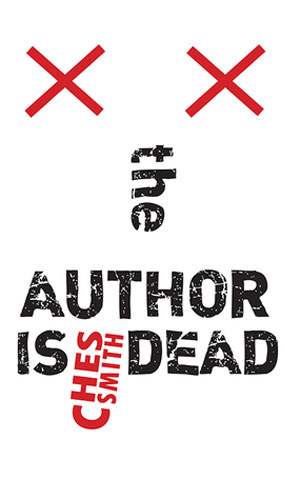 It’s nothing new for a novel’s key character to share his name with the book’s author. Past examples are Stephen King in Song of Savannah, Paul Auster in New York Trilogy, and Philip Roth in Operation Shylock. But
It’s nothing new for a novel’s key character to share his name with the book’s author. Past examples are Stephen King in Song of Savannah, Paul Auster in New York Trilogy, and Philip Roth in Operation Shylock. But 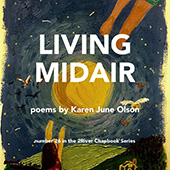 Living Midair
Living Midair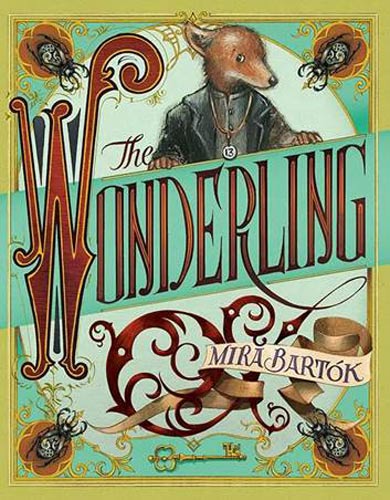 “Have you been unexpectedly burdened by a recently orphaned or unclaimed creature? Worry not! We have just the solution for you!” Welcome to the Home for Wayward and Misbegotten Creatures!
“Have you been unexpectedly burdened by a recently orphaned or unclaimed creature? Worry not! We have just the solution for you!” Welcome to the Home for Wayward and Misbegotten Creatures!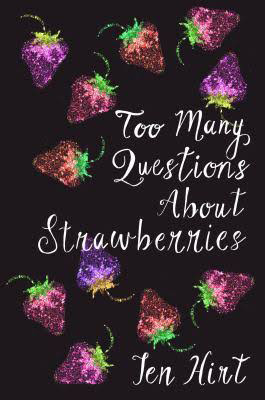 Brandi Pischke
Brandi Pischke There’s still a lot of summer left and many books titles to enjoy from
There’s still a lot of summer left and many books titles to enjoy from 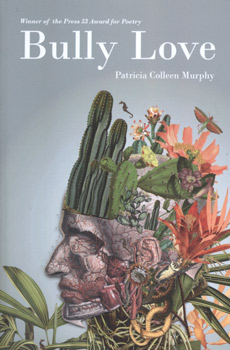 National Poetry Month may have ended in April, but you can keep the festivities kicking by checking out poetry contest winners published last month.
National Poetry Month may have ended in April, but you can keep the festivities kicking by checking out poetry contest winners published last month.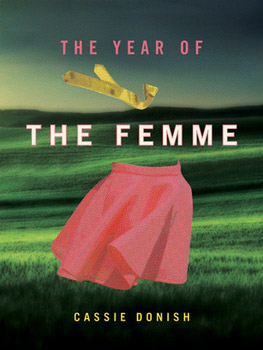 Founded in 1990, the Iowa Poetry Prize is awarded for a book-length collection of poems each year.
Founded in 1990, the Iowa Poetry Prize is awarded for a book-length collection of poems each year.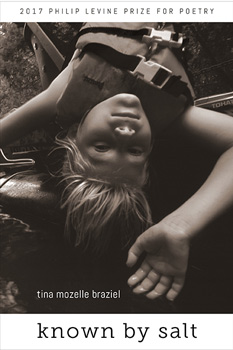 In January, Anhinga Press released the winner of their
In January, Anhinga Press released the winner of their 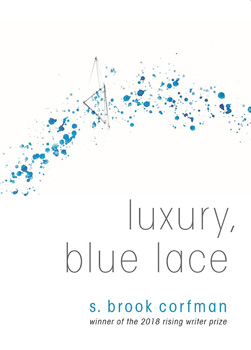 This month, find Luxury, Blue Lace by S. Brook Corfman at Autumn House Press. Winner of the 2018 Rising Writer Contest, judge Richard Siken notes how Corfman “examines the ways that presentation and representation conflate and complicate. Expansive, generous, deeply considered, and highly lyric, this book, with its transformations and overlaps, astounds.”
This month, find Luxury, Blue Lace by S. Brook Corfman at Autumn House Press. Winner of the 2018 Rising Writer Contest, judge Richard Siken notes how Corfman “examines the ways that presentation and representation conflate and complicate. Expansive, generous, deeply considered, and highly lyric, this book, with its transformations and overlaps, astounds.”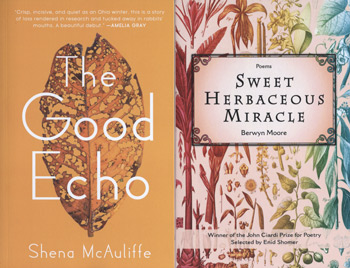 There was a lot going on at the end of 2018, so maybe you missed out on some of the award-winning books published toward the tail end of the year. Don’t worry—we’ve got you covered.
There was a lot going on at the end of 2018, so maybe you missed out on some of the award-winning books published toward the tail end of the year. Don’t worry—we’ve got you covered. Pleaides Press annually hosts the
Pleaides Press annually hosts the 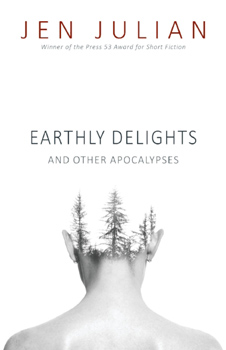 If you’ve been itching to get your hands on copies of the 2018 Press 53 Award for Short Fiction winner, now you can.
If you’ve been itching to get your hands on copies of the 2018 Press 53 Award for Short Fiction winner, now you can.  Frustrated with the current policital administration? You protest, rally, write letters, get yourself and others ready to vote…what more can you do? For poet and musician
Frustrated with the current policital administration? You protest, rally, write letters, get yourself and others ready to vote…what more can you do? For poet and musician  Available this month is the winner of the 2017
Available this month is the winner of the 2017 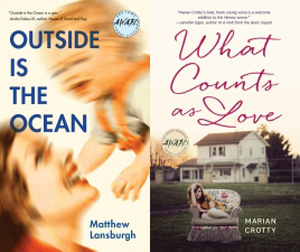 The University of Iowa Press published the winners of the 2017 Iowa Short Fiction Award and the 2017 John Simmons Short Fiction Award last month.
The University of Iowa Press published the winners of the 2017 Iowa Short Fiction Award and the 2017 John Simmons Short Fiction Award last month. September is a busy month for award-winning book releases. Here is just a sampling of small press and university press titles readers can look for this month.
September is a busy month for award-winning book releases. Here is just a sampling of small press and university press titles readers can look for this month.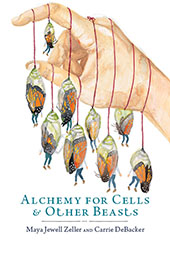 Entre Rios Press
Entre Rios Press Les Figues Press held their NOS Book Contest every year from 2011-2015, awarding $1,000 and publication to a writer of a poetry or prose manuscript, which includes lyric essays, hybrids, translations, and more.
Les Figues Press held their NOS Book Contest every year from 2011-2015, awarding $1,000 and publication to a writer of a poetry or prose manuscript, which includes lyric essays, hybrids, translations, and more.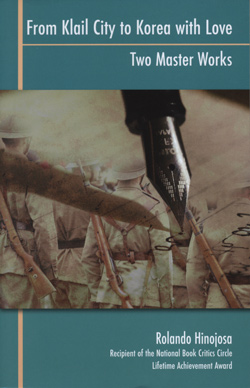 At the end of April, Arte Publico Press released a two-volume collection from Rolando Hinojosa. From Klail City to Korea with Love contains Rites and Witnesses and Korean Love Songs from the Klail City Death Trip Series.
At the end of April, Arte Publico Press released a two-volume collection from Rolando Hinojosa. From Klail City to Korea with Love contains Rites and Witnesses and Korean Love Songs from the Klail City Death Trip Series.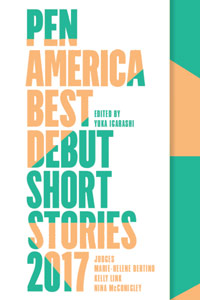 The PEN/Robert J. Dau Short Story Prize for Emerging Writers recognizes 12 emerging fiction writers for their debut story published online or in a literary magazine during the calendar year. The twelve winners each receive $2000 and are to be compilated in the inaugural anthology published by Catapult in August 2017.
The PEN/Robert J. Dau Short Story Prize for Emerging Writers recognizes 12 emerging fiction writers for their debut story published online or in a literary magazine during the calendar year. The twelve winners each receive $2000 and are to be compilated in the inaugural anthology published by Catapult in August 2017.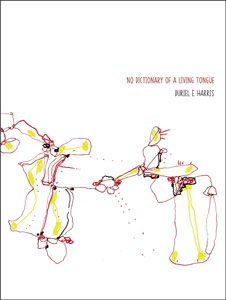 Nightboat Books publishes the winners of the annual Nightboat Poetry Prize, the 2015 winner to be released next month: No Dictionary of a Living Tongue by Duriel E. Harris. Judge Kazim Ali says of the poetry collection:
Nightboat Books publishes the winners of the annual Nightboat Poetry Prize, the 2015 winner to be released next month: No Dictionary of a Living Tongue by Duriel E. Harris. Judge Kazim Ali says of the poetry collection: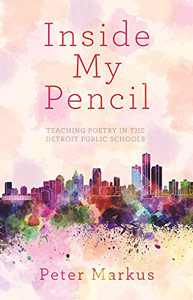 Recently chosen as a
Recently chosen as a 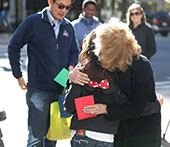 In 2015, on the anniversary of his wife’s death as a result ovarian cancer, Hyong Yi wrote 100 love notes and, along with his two children, handed them out to random passers by on the streets of
In 2015, on the anniversary of his wife’s death as a result ovarian cancer, Hyong Yi wrote 100 love notes and, along with his two children, handed them out to random passers by on the streets of